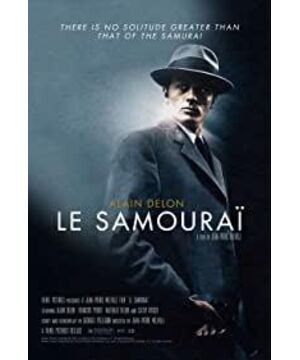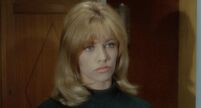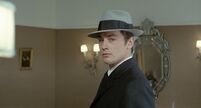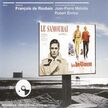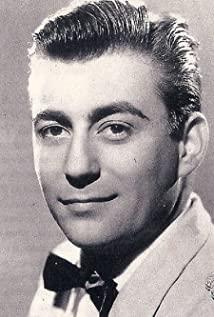How you look at these things depends on your perspective and on the details you understand or he presents. When the details are richer, the more you can understand the protagonist's situation, the easier it is to develop empathy, which leads to identification and sympathy.
Likewise, Castro Jeff in real life would be nothing more than a criminal. Stealing a car, changing license plates, getting hired to kill, if you heard about someone like that, wouldn't you take it for granted that he was a wretched thief, a terrible murderer? But the director is so tireless in presenting all the details in front of us that the audience has a consistent position with it - we are worried about it, not expecting him to be arrested.
If that's the case, then this simple story can be made into a police and gangster film with a messy lens style like the mainland, or further, a police and gangster film that considers the desolation of the underworld in Hong Kong. But Melville's mastery lies in his philosophical thinking and prominent video style.
"There is nothing more lonely than a samurai, except perhaps a tiger in the jungle." After two minutes of staring coldly at the room, which had fallen into nothingness amid the sound of wind, rain and monotonous birdsong, the subtitles read These few words set the tone of the whole play.
Alain Delon, who plays Castro, is tall, well-dressed, taciturn and expressionless, and even his trench coat has a cold edge. He's not even close to his girlfriend who loves him. "This is a lone wolf," said the gang leader.
In the animal world, lone animals are the most vulnerable. Castro faced a double dilemma: On the one hand, the police department listed him as the number one suspect; on the other hand, his financial masters feared him and wanted to cut the weeds. Whether it's the police or the gang, it's a group action, a pack animal, and only he, a lone wolf, is fighting with his bare hands. The emergence of this dilemma not only strengthens the plot of the film, but also has deep meaning in itself. We see the skillful and witty survival skills displayed by a single-handed wolf, and also the wisdom of seeking death when he is unable to break through.
The visual language of this film is so cold and deep, so cold that we can all feel the loneliness in it. The lens is full of deep cool colors, black, gray, white, dark blue; the interior of the room is cement paint, the hanging clothes and the carvings on the mirror are cold iron, and a bird in the bird cage repeats monotonously cry. Only the slowly spewing smoke ring is the only moving body.
Such a monotonous and lonely life will cultivate a stern character. In other words, only such a stern character can endure such a monotonous and lonely life. However, because of this loneliness, there is the tenderness he showed to the female pianist. This kind of warmth is subtle and strong, and it matches all we expect from a killer: he has sincere emotions, only rare and clear, but that's why this emotion is so precious-because he can give his life for the price.
Melville tells us that a good story needs a concise structure and a strong dialogue (such as the dialogue between the police chief and Castro's girlfriend), rather than a twisty but messy and fragmented plot ("Star Trek: Darkness"); and a good director has the ability to give an ordinary murder a complete philosophical thought.
View more about Le Samouraï reviews


